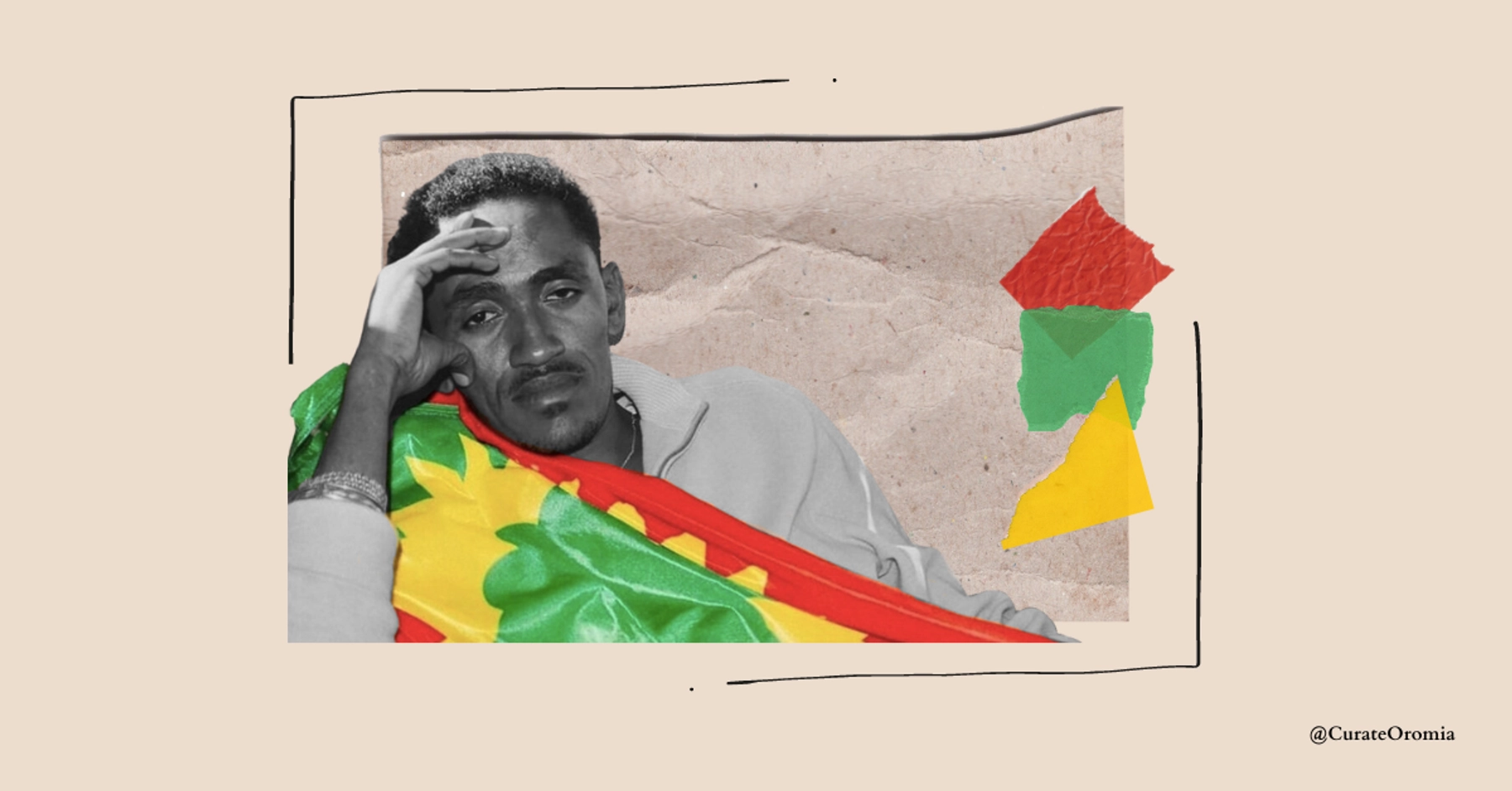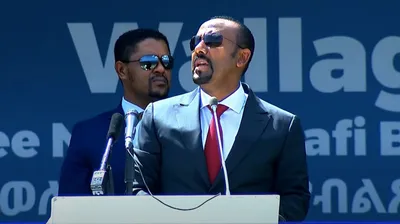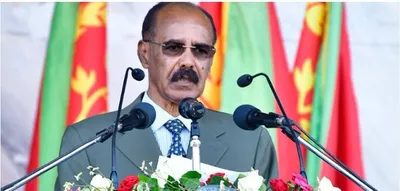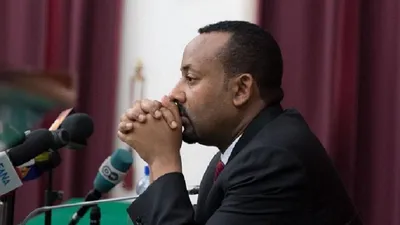Killers of yesterday cannot bring justice today

Never existed a country where Erich Hartmann’s words, “War is a place where the young kill one another without knowing or hating each other, because of the decision of old people who know and hate each other, without killing each other,” ring true than Oromia.
Oromia has a long history of elites striking bargains and ordinary people suffering the consequences. The latest example, in case anyone wishes to forget, is the 2018 political game that elevated a person whom, for the sake of this article and truth, I shall call ‘The Butcher of Wollega,’ to a position of power. This person is none other than Prime Minister Abiy Ahmed.
![Ethiopian Prime Minister Abiy Ahmed [left] sits with Minister of Defense Lemma Megersa, November](https://curateoromia.com/wp-content/uploads/2022/01/abiy-lemma-.jpeg)
I watched in horror as the people who led millions of Tegaru into an “existential war” smiled, hugged, and kissed their butchers, rapists, and pillagers.
As a result, some of us Oromos are concerned that the so-called “Peace Deal” in Tigray, where two genocidal administrations congratulated each other after sacrificing the lives of over 500,000 people, maybe repeated in Oromia.
No, this is not an attempt to draw a parallel between the Prosperity Party and the OLA or between the OLA and TPLF. Rather, it is an attempt to highlight that while I believe the Prosperity Party regime was the aggressor, I am also alarmed by the OLA’s failure to hold its soldiers accountable for any wrongdoing.
Nothing is new under the sun, and unfortunately, Oromos are no strangers to being denied justice.
Oromo parents who lost their children during the five-year-long, peaceful #OromoProtests movement are still awaiting justice for their slain children, political prisoners are waiting for their jailers to be held accountable, and families are waiting to see their loved ones honored and healed from the blow their country and peers dealt them.
I caution you not to interpret this as a call to arms. Peace efforts are always welcome. Nevertheless, we must remember that the Prosperity Party regime, which was imposed on the public by an elite class that saw it acceptable to use the bombing, killing, displacing, and starvation of Oromos as part of an “Oromummaa” agenda, cannot be trusted to bring justice.
Furthermore, it is a reminder to those who wish to forget people’s suffering to achieve a political goal, that Wollega and Guji suffered greatly as a result of the civil war. The social fabric is been torn, the economy has collapsed, and the civil war has forced a demographic change that will carry dangerous consequences far into the future.
Oromos have a short memory
Oromos have a rather short memory. We watched as the butcher of Wollega stood before the masses and promised to never return to the old ways of prosecuting the Oromo to maintain Ethiopia. He, and many others, asked us for forgiveness, and out of the goodness of our hearts and the continued badgering of our elite, we gave in to our peaceful instinct and granted them their wishes.
They sure proved us wrong, and Abiy Ahmed and his regime did not wait long to break all promises made. I doubt any sane Oromo is in need of a history lesson on what happened post-2018 and I doubt any true Oromo forgot the regime’s repeated vows to destroy us.
Some might interpret this as an attack on the Prosperity Party or as an attempt to undermine their peace efforts. However, I argue that the regime has no moral leg to stand on. This is a reminder to all of us that only the truth can bring about reconciliation, and only humility before the masses who carried the brunt of every reckless elite decision can ensure true peace.
In Oromia, the belief that transitional justice must be the only foundation of peace is true. We cannot accept a rationale that attempts to convince us that yesterday’s killers have changed and will not repeat their crimes. Therefore, we must reject appeals to tradition and emotion, as well as attempts to garner sympathy from the masses.
A peace agreement that doesn’t address the root causes of recurring conflicts in Oromia is meaningless, and if it fails to deliver justice, it becomes redundant. If we settle for an incomplete peace, the conflict will resurface in different areas, in different forms, and for different reasons. Furthermore, I believe a peace that ignores people’s grievances will inevitably lead to an all-out war.
Therefore, I challenge mediators, civil society organizations, and our ‘esteemed intellectuals’ for once to engage with the grassroots in the war-torn regions and elsewhere in Oromia, listen to their concerns, and begin a process to include some, if not all, of their demands in the fine print of any peace deal. I also challenge them to ensure its implementation.
Finally, Oromos rightfully claim to be a peace-loving people who value human life and existence. It is for this reason that I hold onto hope that we will not let the words of the warmonger Franklin D. Roosevelt, “War is young men dying and old men talking,” come true.
We need your support
We trust you found something of value in this article. If so, we kindly ask you to consider helping Curate Oromia continue its work.
If you believe in the importance of independent voices and honest reporting, we invite you to support our efforts through our GoFundMe campaign.
Every contribution, however small, goes directly to our writers and the expansion of our reach.
Thank you for your support.



